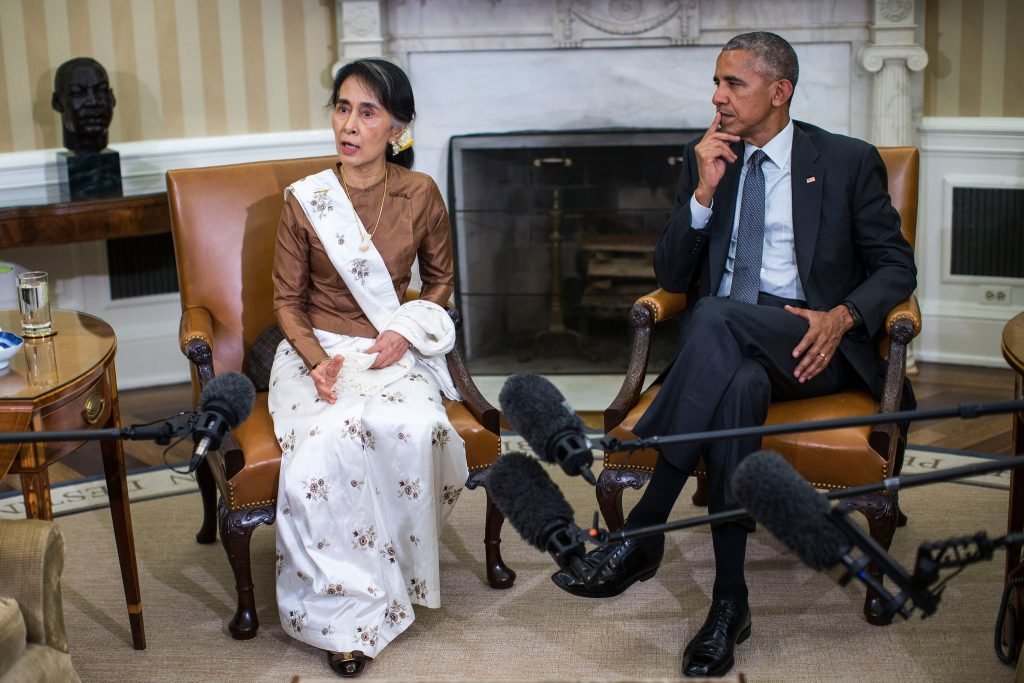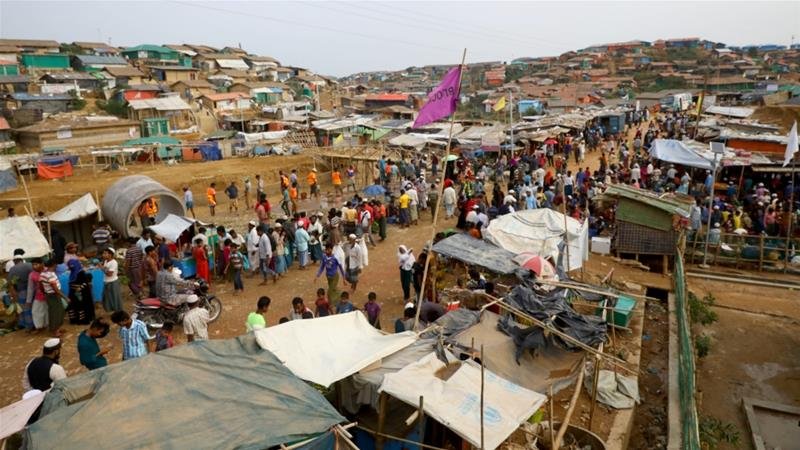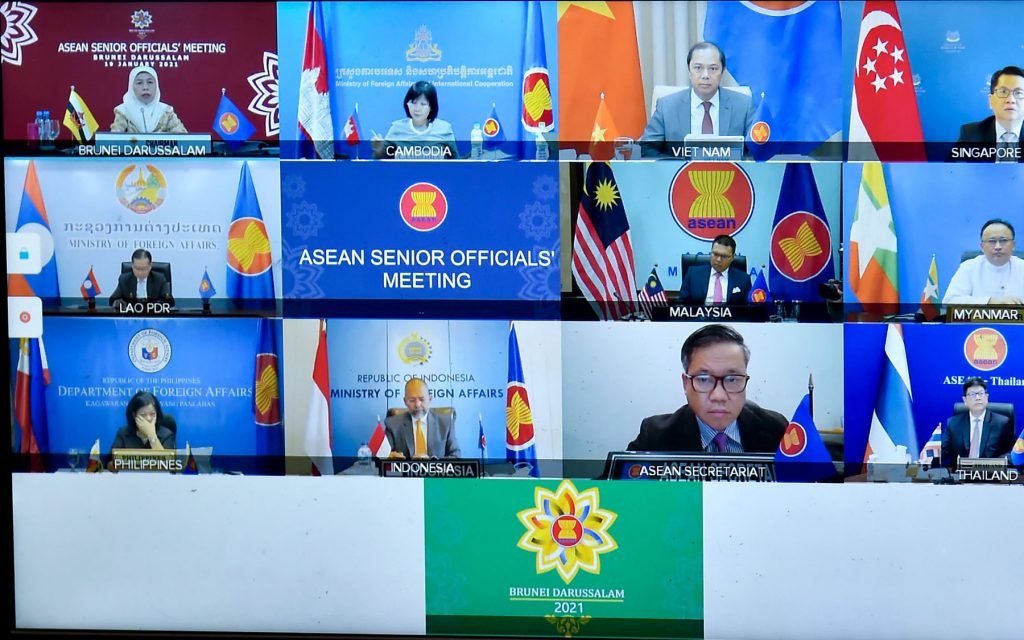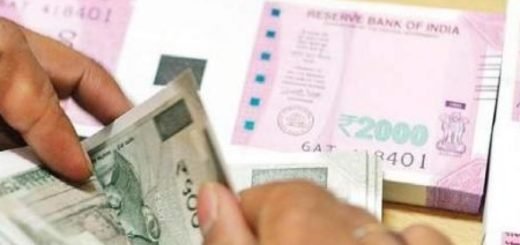Failing Myanmar the ASEAN Way

The rise of China and the shifting of the great power politics to the Indo-Pacific have put ASEAN right in the limelight. There are questions over ASEAN’s ability to maintain its centrality in the politics of China and the Quad. However, it is the deteriorating situation in Myanmar that has put a question mark on ASEAN’s relevance even as a regional organisation.
Myanmar and ASEAN’s ties with the United States
Myanmar joined ASEAN in 1997 during the organisation’s expansion. It has played an important role in shaping the role and engagement of the organisation since then. The ASEAN way of ‘non-interference’ and the rule of the military junta (till 2011) in Myanmar didn’t bode well. The military rule in Myanmar was one of the reasons for the United States’s strategic quiet in South East Asia during the 1990s and the 2000s.
In 2008, the junta failed to respond to the destruction unleashed by cyclone Nargis. This allowed the ASEAN to push for democratic reforms with aid as an incentive. The ASEAN charter finalised the previous year had shown a normative commitment to promoting democracy in the region. It also launched the Bali Democracy Forum in 2008 posturing a shift to greater humanitarian commitments.
A referendum was held in Myanmar in 2008 over democracy and elections were promised to be held in 2010. The Obama administration normalised relations with Myanmar through, the then Secretary of State, Hillary Clinton’s visit to Myanmar. It linked the easing of sanctions with democratic reforms. Eventually, the junta compromised and gave way for a democratic but restrained government.

Democracy on a leash
Following the elections in 2010, the military junta was dissolved in March 2011. But it wasn’t truly a transition to democracy. The military-backed Union Solidarity and Development Party (USDP) claimed a landslide victory primarily because Suu Kyi’s National League for Democracy boycotted the elections. The USDP rolled in gradual reforms as a commitment to ease sanctions on Myanmar and to claim its opportunity to chair the ASEAN in 2014.
The general elections in 2015 were openly contested and the NLD won the majority of the seats in both house of the parliament. Htin Kyaw was sworn in as the President while Suu Kyi, constitutionally ineligible for the presidency, took the role of the state counsellor as the de facto leader. However, the contestation between the military, its USDP, and the civilian government continued. It took a bloody turn when the military unleashed a campaign against the Rohingyas in the Rakhine state and the Suu Kyi’s government acted in connivance primarily to appease its voter base amongst the Burmese. ASEAN’s failure to respond to the plight of the Rohingyas further damaged its humanitarian agenda. It was caught again in its commitment to non-interference and consensus. It even failed to act independently of the Myanmar government to help the Rohingyas and failed to pressurise it to curb the atrocities. ASEAN’s failure has led to one of the bloodiest genocide and a massive refugee crisis in the modern history of the region. Now, its failure to respond to the coup in Myanmar puts a question mark on its relevance.

Back to Square One
The Tatmadaw, armed forces of Myanmar, carried out a coup d’etat on February 1, 2021 after Suu Kyi’s NLD was set to start another term. The NLD had successfully claimed the majority in the 2020 general elections. The Tatmadaw usurped power claiming that the NLD has committed election fraud. It has declared a year-long emergency and Myint Swe has been sworn in as the acting President. The Tatmadaw is controlling the state through the State Administration Council (SAC) under Min Aung Hlaing. The people have resisted the coup through a Civil Disobedience Movement and the opposition has been formalised as the National Unity Government. Hundreds of protesters have died, thousands have been arrested, and many more have fled the country.
The ASEAN met on 24 April 2021 to discuss the situation in Myanmar. The organisation came out with a ‘five points consensus’. It was a weak stand. They suggested the involved parties engage in dialogue, end violence, and send an envoy to monitor the situation. This should not be surprising as Hlaing attended the meeting and the ASEAN continues to adhere to its policies of non-interference and consensus.
The ASEAN has failed to even deliver on its weak promises including sending an envoy. The situation is far deteriorating and the country is now in a civil war. Not only has the ASEAN failed to take any substantive steps, but it is also now actively undermining international efforts to address the situation. In recent news, the ASEAN members have been lobbying to drop the proposed arms embargo on Myanmar in the negotiations for a General Assembly resolution. Considering that the General Assembly resolutions are just recommendatory, such lobbying from the ASEAN members reflects a shift away from its normative agenda of the 2007 Charter and the Bali Democracy Forum.

An ASEAN Way Forward?
International and regional organisations have often found their commitment split between the governments of the nation-states and their people. More often than not organisations side with the governments. However, ASEAN has even failed to stand with the legitimate government of Myanmar. It has time and again shown its limited capability to advance and protect the interests of the people. The ASEAN way becomes an excuse for it to avoid its normative and humanitarian agenda. In the case of Myanmar, ASEAN has abdicated its moral responsibility towards, first, the Rohingyas and, now, the rest of the citizens of Myanmar. It plays only a peripheral role in the matters of human security and socio-political stability within a country. So on the question if an ASEAN way forward is possible especially for the people of Myanmar? Unlikely. ASEAN is yet to recognise the NUG. It hasn’t taken any initiative to bring together the other neighbours of Myanmar—Bangladesh, India, and China—to develop a strategy. As Suu Kyi appeared in public, at the court hearing, for the first time since the coup, this may turn out to be a Zulfiqar Ali Bhutto moment.


















